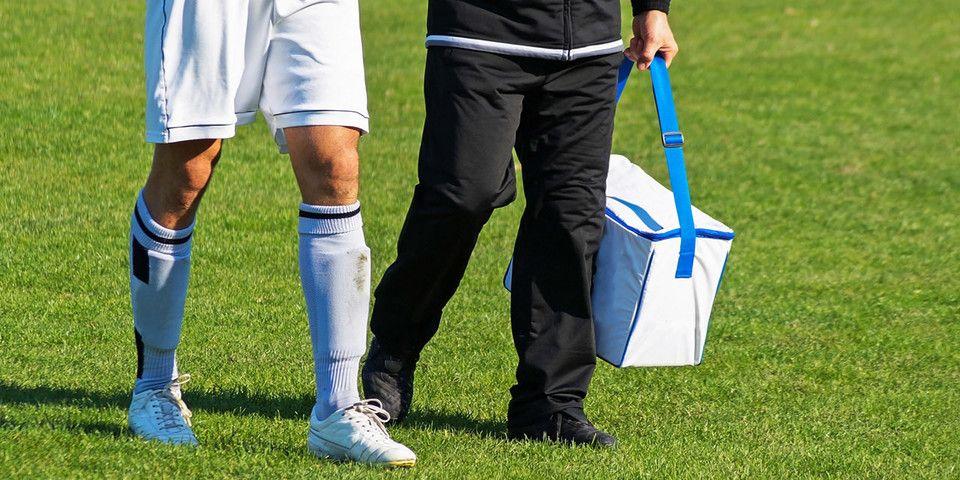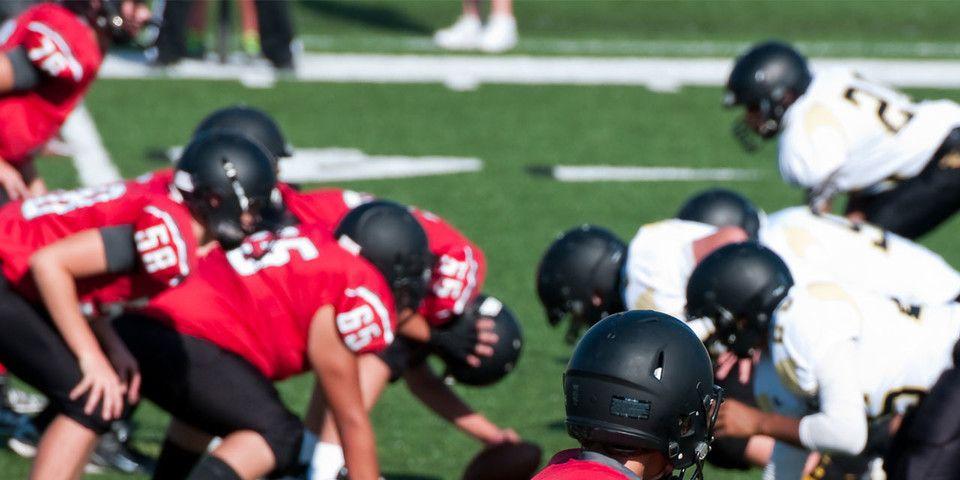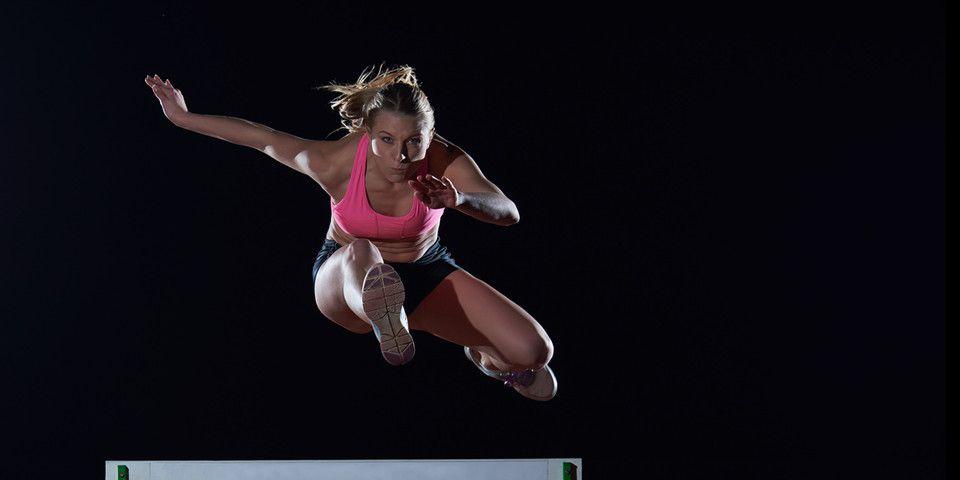Seven Ways to Prevent Softball Pitcher Injuries
Take measures to keep yourself safe.
Softball pitchers have similar injury rates as position players, but the type of injury that pitchers tend to suffer is different. The windmill motion of pitching puts unique demands on the player’s back, neck, shoulder, forearm, and wrist. Thus, many softball pitcher injuries are caused by overuse such as: shoulder tendonitis, back or neck pain, and elbow, forearm, and wrist tendonitis.
Types of Softball Pitcher Injuries
-
Rotator Cuff Injury: The rotator cuff is a group of muscles and tendons cushioning the shoulder joint that hold the upper arm in the shoulder socket. A rotator cuff injury causes a dull ache in the shoulder. An acute injury would be any tear or strain to the rotator cuff from a traumatic event, such as using your arm to break a fall. Chronic injuries, which are more common to softball pitchers, result from overuse or impingement of the rotator cuff.
-
Tendonitis: Tendons are made up of collagen fibers that connect muscle to bone. Repetitive loading of a tendon beyond the tendon’s capability causes weakness and eventually a tissue breakdown, resulting in pain, swelling, and decreased functionality. Structural changes take place during this degenerative process, including the thickening of the connective tissue and the synovial sheath covering the tendon, abnormal tissue called fibrosis grow in the tendon, and the development of adhesions (scar tissue). The longer the condition goes untreated, the more structural changes occur.
Bicipital tendonitis, an inflammation of the tendon attaching the top of the bicep muscle to the shoulder, is common in softball pitchers. A softball pitcher with bicipital tendonitis can practice wrist work for rotating the ball instead of full arm rotation pitches to take the pressure off the aggrieved tendon. She can also decrease the number and intensity of pitches, focusing on mechanics rather than having the fastest pitch. -
Back pain: Back pain can be caused by several different conditions, the most common being facet syndrome, disc herniation, and muscle spasms.
-
Facet syndrome consists of a compaction or “jamming” of the small joints in the back from repeated and prolonged extension (bending forward of the back). This problem is commonly experienced by pitchers, who frequently have a forward-tilting pelvis as a result of their throwing position.
-
Disc herniation can happen to anyone, even from poor mechanics and posture. A disc injury can occur in softball when the spine is subjected to a load during rotation that is not supported by strong hips, pelvis, and core.
-
If you have a muscle spasm, you may experience a stabbing, concentrated back pain or feeling of tightness that feels better after stretching. A spasm is the reaction of a muscle trying to protect itself from another injury, such as a muscle strain, joint sprain, or disc injury. A doctor will examine you for other injuries which the spasm may be protecting before treating the spasm itself.
-
Seven Ways to Avoid Softball Pitcher Injuries
If you’ve already been injured, the first and most important thing you can do is see a qualified Sports Medicine doctor to begin treatment. When an injury is left untreated and continues to cause pain, it can become chronic. As scar tissue develops and your body begins to incorporate the injury into your muscular dynamics, it becomes harder (and takes longer) to rehabilitate. Here are seven other ways you can prevent injury if you’re a softball pitcher:
-
Don’t pitch with pain. Ask your coach to take a break to prevent an overuse injury at the outset.
-
Warm up properly through stretching and a gradual buildup of throwing.
-
Rotate by playing other positions besides pitcher. Give that arm a break!
-
Don’t play year round.
-
Always keep your focus on control, accuracy, and proper mechanics.
-
Build abdominal and back strength through targeted exercises.
-
Speak to a Sports Medicine provider if and when you experience any pain.
Trust the Sports Medicine Doctors at Rothman Orthopaedics
Rothman Orthopaedics' Sports Medicine doctors treat a variety of conditions. We offer the full spectrum of orthopaedic care, utilizing the best in orthopaedic science and technology. Our doctors are experts in advanced treatment methodologies and therapeutic services. Each year, we treat hundreds of athletes so they can return to what they love best — playing sports. If you or a family member is suffering from a softball pitcher injury contact us at 1-800-321-9999 for your first appointment.
Related Specialties
Related Conditions
Related Programs
-

Athletic Training- Sport Medicine Outreach
Our Field Athletic Trainers provide direct sports medicine care to youth, high school, college and professional athletes. Rothman AT’s provide athletic training services throughout Southeastern PA to interscholastic high schools, colleges, as well as tournaments and special events.Read More -

Injury Prevention Program
The Injury Prevention Program at the Rothman Orthopaedic Institute is dedicated to the prevention of injuries from athletic participation, particularly youth sports.Read More -

Overhead Throwing Program
Whether it’s throwing a javelin or pitching a baseball, the overhead or throwing athlete is exposed to tremendous forces during overhead sports.Read More -

Women’s Sports Medicine Program
The Women’s Sports Medicine Program at the Rothman Orthopaedic Institute is the first of its kind in the Philadelphia metro area and one of only several such programs specializing in the comprehensive care of the female athlete in the country.Read More




